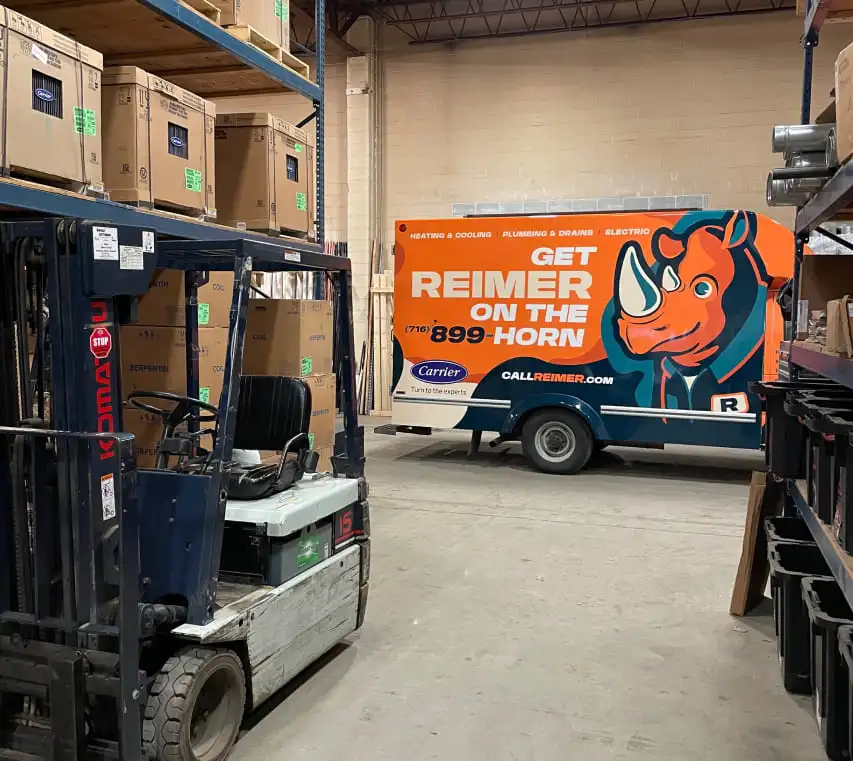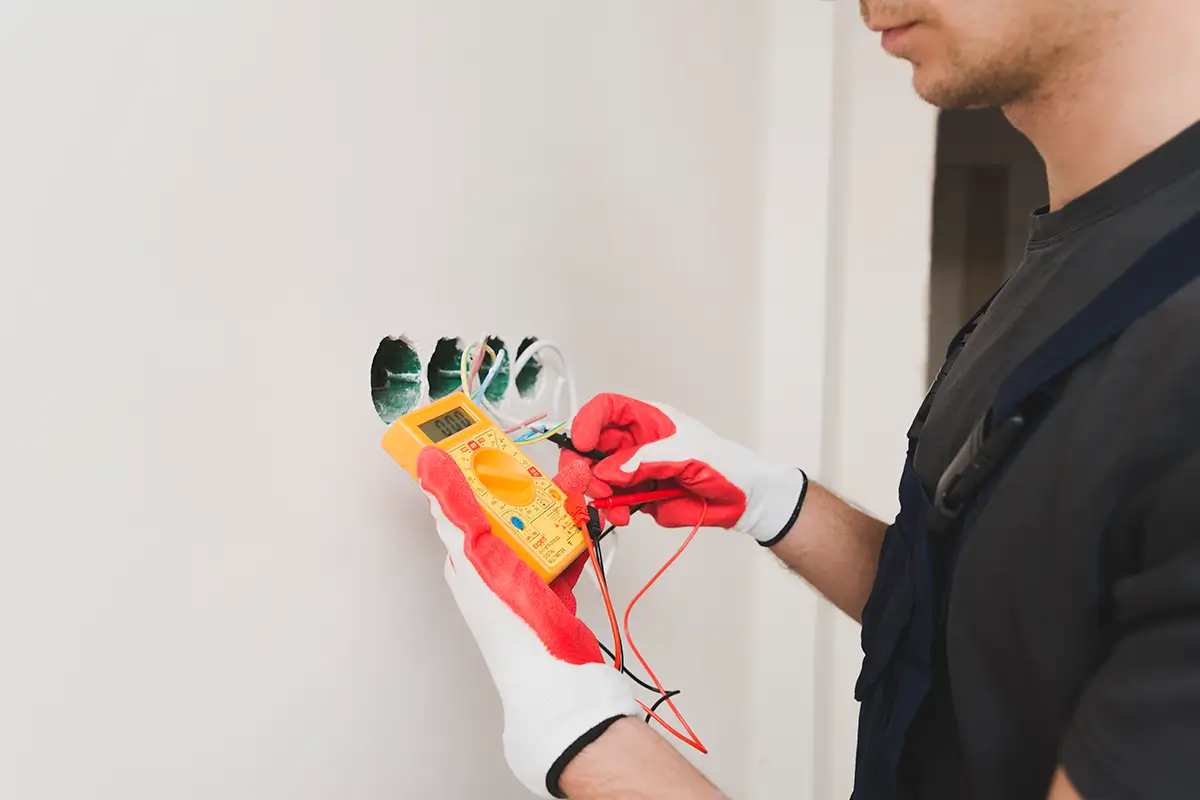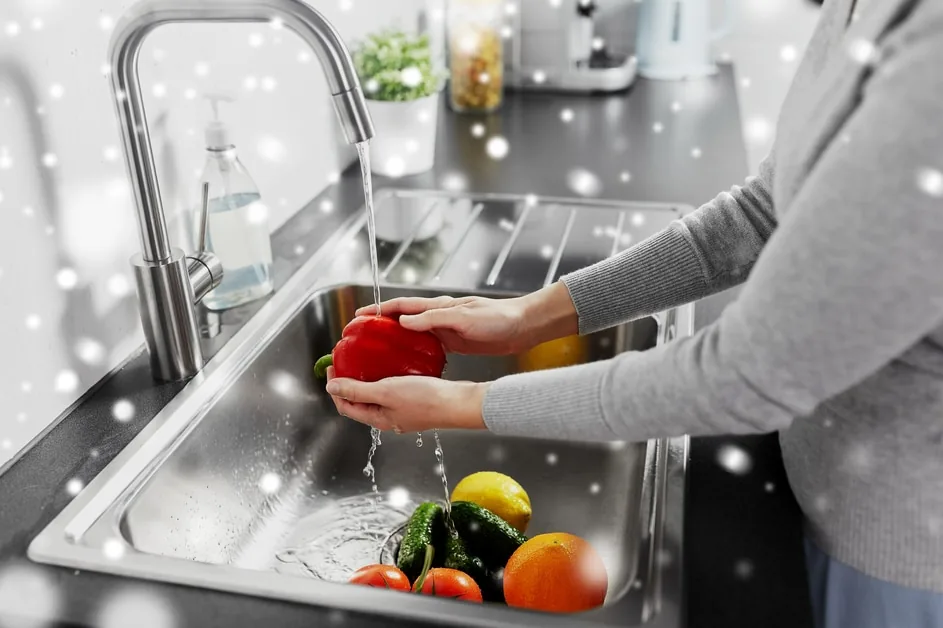The weather outside may be starting to become frightful, but your home’s water supply should not. It’s that time of the year again, the time when temperatures may drop below freezing in the Buffalo area and you need to protect your home from freezing pipes. Nothing is much worse than having a pipe or pipes freeze and having no water, or even more terrible, having those pipes burst. Having a frozen or burst pipe any time of the winter is terrible, especially right now when it can really put a damper on your holiday season.
We have reviewed before things you can do to get your plumbing ready for the colder weather and to avoid some common plumbing problems, and, as we all know, having frozen pipes is at the top of that list. Not only is it one of the most common problems in the colder months of the year, it is also the most dreaded. We may be a little early in the season to hopefully have to worry about pipes freezing; however, with our unpredictable weather you just never know and should still be prepared.
What Causes Pipes to Freeze?
A frozen pipe is not just inconvenient, it is at risk of bursting and flooding your home. Water has a unique property; it expands as it freezes. This expansion puts tremendous pressure on whatever is containing it, including metal or plastic pipes. No matter the strength of a container, expanding water can cause pipes to break.
According to the American Red Cross, pipes that freeze most frequently are:
– Pipes that are exposed to severe cold, like outdoor hose bibs, swimming pool supply lines, and water sprinkler lines.
– Water supply pipes in unheated interior areas like basements and crawl spaces, attics, garages, or kitchen cabinets.
– Pipes that run against exterior walls that have little or no insulation.
Can You Protect Your Home From Freezing Pipes?
You can protect your home from freezing pipes. How? Let’s review.
Embrace insulation and add it where needed. Add insulation to attics, basements, crawl spaces, and other colder areas around your home that house your plumbing. Insulation will help to maintain higher temperatures in those areas. You can also add insulation to your pipes to help provide an extra layer of protection from the brisk air. Exposed pipes with no insulation are more likely to freeze.
Drain water from all outdoor water sources and shut them off. This includes draining water from swimming pools, water sprinklers, fountains, hoses, and any other outdoor water you may use throughout the warmer months of the year. This is the time to shut off your outdoor faucets at their shutoff valves. Open the outside hose faucets to allow all of the water to empty. Keep the outside valve open so that any water remaining in the pipe can expand without causing the pipe to burst.
Leave your cabinet doors open. Walking into a Buffalo home in the winter and seeing the cabinets opened is not uncommon. This is because open kitchen and bathroom cabinet doors allow warmer air to flow around the plumbing, helping to prevent them from getting too cold and protecting your home from freezing pipes.
Don’t be afraid to let water drip. When the weather is extremely cold outside, like it is much of the winter, let the water drip from the faucets. A trickle of hot and cold water might be all it takes to keep your pipes from freezing. Typically pipes don’t freeze until temperatures drop below 20° F; however, since water freezes at 32° F, you just never know what may be enough to make your home’s pipes freeze.
Set the thermostat to a constant temperature and don’t turn it off when you leave. To protect your home from freezing pipes you should keep your home’s temperature and thermostat set the same both during the day and at night. If you are traveling or leaving your home, leave the heat on and set to a temperature no lower than 55° F.
You can protect your home from freezing pipes, and with this being the season to be filled with cheer and joy, you definitely don’t want frozen pipes to bring you down and ruin your celebrations. Check out our other tips to avoid frozen pipes in your Buffalo, New York home.
Frozen Pipes? Call Reimer!
If your home’s pipes have frozen, call us right away. Our plumbers are available day or night. Your frozen pipes cannot wait: a frozen pipe is at risk of bursting and flooding your home.
For Buffalo and Erie County plumbing services, call us or request service online.





